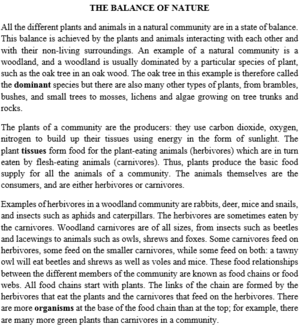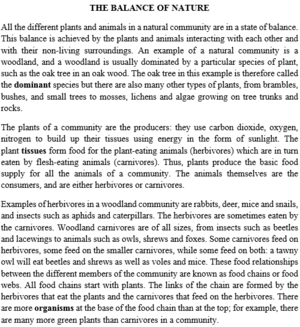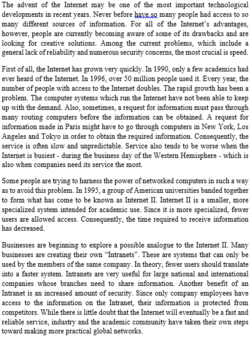Read the following passage and mark the letter A, B, C, or D to indicate the correct answer to each of the question.
More often than not, you can't just "order up a job" by responding to an online posting and have it delivered in one or two days as if you were buying whatever your heart desires on Amazon. Even as employers are hiring at a higher rate than they have in the last several years, it can often take months to work your way through the job search process. If you are a new graduate yet to receive a job offer, if you recently moved to a new locale with your spouse or partner or if you are unemployed for any other reason, you may find success in your job search by spending time volunteering at a nonprofit organization.
Both the nonprofit and for-profit worlds need people with many of the same talents. The best volunteer jobs for you to consider are ones where the experience you acquire will be applicable in the "for-pay" position you want to attain. It's often the case that once you display your passion for the organization and its mission, and have demonstrated your abilities, you'll earn strong consideration when a paying position opens up that can benefit from your talents. Even if you don't have a path to employment at the place you volunteer, by highlighting your volunteer experience on your resume, you can demonstrate that you haven't been wasting your time away staying at home watching the grass grow.
There are a few strategies you might adopt when considering at which organization you'll want to volunteer. You' ll probably want to make a priority of volunteering to do what you've already done, or want to do, in the for-profit sector. Alternatively, however, it might make sense to volunteer to do something where you can turn an area of professional weakness into a new strength. Remember, as well, that nonprofit organizations maintain strong relationships with their corporate sponsors, and you might look for a volunteer position that would enable you to be that nexus point between the two. And, especially if you are recently out of school, you should look for positions that let you learn about an occupation, a field of interest or an industry.
As you try to determine what you want to volunteer to do, and where you want to do it, make three lists: your marketable skills, the roles you seek and the kinds of charitable organizations you would want to support. For example, perhaps your skills cluster around accounting, marketing or event planning. Think about how these might come in handy for organizations that need financial help figuring out how to brand the organization to attract other volunteers or donors or run anything from charitable golf tournaments to gala dinners.
(Source: https://money.usnews.com/)
According to the first passage, the following should spend time volunteering at a nonprofit organization, EXCEPT __________.
A. employers
B. emigrants
C. the jobless
D. new graduates








Đáp án A
Theo đoạn văn đầu tiên, những người sau đây nên làm tình nguyện ở các tổ chức phi lợi nhuận, ngoại trừ ________.
A. người tuyển dụng B. người di cư
C. người thất nghiệp D. sinh viên mới tốt nghiệp
Từ khóa: volunteering at a nonprofit organization/ except
Căn cứ thông tin đoạn 1:
“If you are a new graduate yet to receive a job offer, if you recently moved to a new locale with your spouse or partner or if you are unemployed for any other reason, you may find success in your job search by spending time volunteering at a nonprofit organization."
(Nếu bạn là 1 sinh viên mới tốt nghiệp nhưng chưa có được việc làm, nếu gần đây bạn mới chuyển đến một chỗ ở mới cùng với người bạn đời hay cộng sự hay nếu bạn thất nghiệp với bất kì lý do gì, bạn có thể kiếm được một công việc bằng cách đành thời gian làm việc tình nguyện ở các tổ chức phi lợi nhuận).